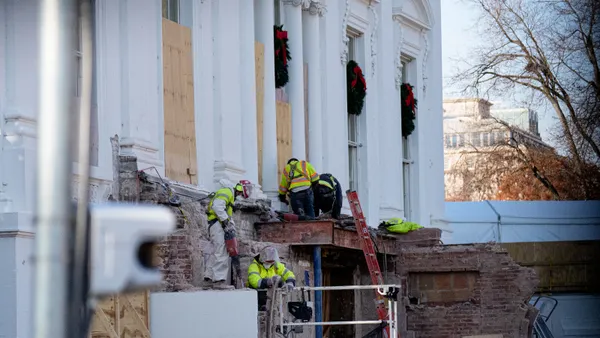Dive Brief:
- A federal court in Connecticut has ruled that painting contractor Safety Marking Inc. must pay two former employees more than $1.5 million each for creating a hostile working environment and for race discrimination, according to the Connecticut Post.
- The lawsuit alleged that Yosif Bakhit, a Muslim Sudanese-American, and Kiyada Miles, who is African-American, were subjected to "a pattern of abuse" for years, ranging from racial and ethnic insults and slurs to being passed over for promotions in favor of less-experienced white employees.
- An attorney for Safety Marking said it will appeal but had no other comment. The company, with offices in Connecticut, Rhode Island and New York, is a regular winner of major state and airport contracts for road and runway painting projects.
Dive Insight:
According to the complaint, a year after Bakhit started working at Safety Marking, offensive racial comments and situations began to occur, such as comparing Bakhit to a black doll, giving him the worst assignments and throwing bananas at him. Miles said he also endured such racial comments but, in addition, observed a fellow African-American worker being dragged alongside a work vehicle for two blocks.
According to the Post, Bakhit said he filed a complaint with the company in 2012, but that his concerns fell on deaf ears. Bakhit's lawyer said that soon after making the complaint, Bakhit found his car window smashed with a rock.
Diversity concerns are an ongoing issue in the construction industry, as construction has struggled to draw minorities and women. In an EFCG survey of A/E/C firms of varying sizes, the group found that none of the surveyed firms had minorities in their executive suite. And in a report last month, the New York Building Congress reported that the percentage of women and minority workers in the city's construction industry dropped last year — a fact the city found "concerning."
During the Associated General Contractors of America Convention earlier this month, experts pointed to improving diversity as one of the key ways to solve the ongoing labor shortage and to create a more productive industry. They advised that companies form diversity steering committees, perform culture audits or surveys of the staff, and raise awareness of the issue throughout all levels of a construction firm.













